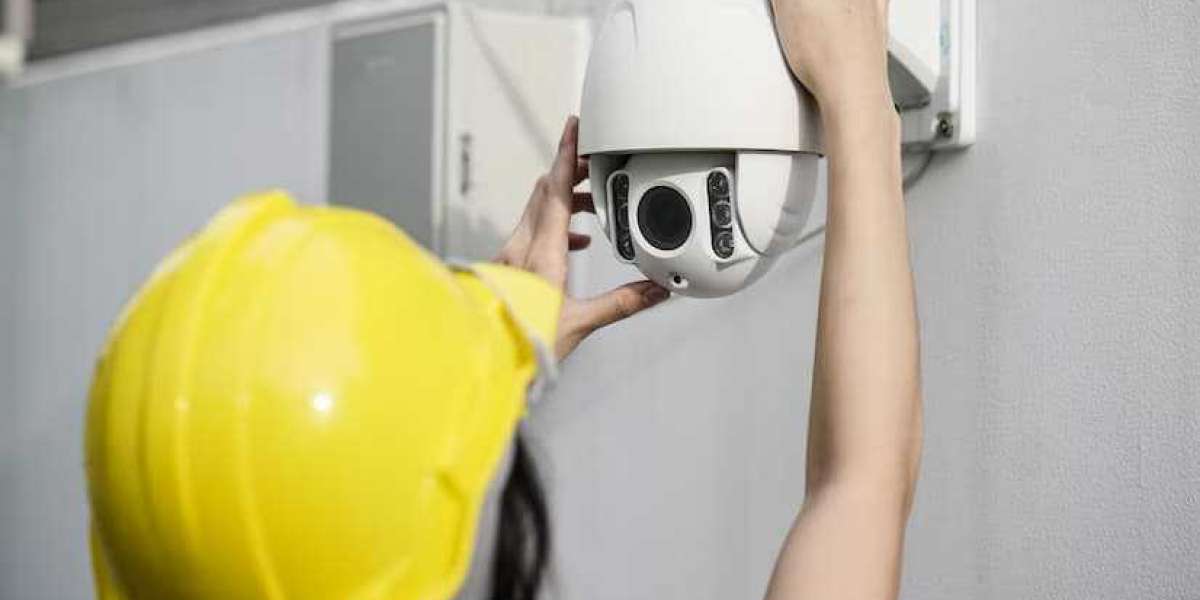In an age where security is paramount, the role of a CCTV installer has emerged as a vital profession. With the increasing demand for surveillance systems in homes, businesses, and public spaces, the skills required to excel in this field are more important than ever. A great CCTV installer must possess a unique combination of technical knowledge, problem-solving abilities, and interpersonal skills. This article explores the essential skills that contribute to the effectiveness and success of a CCTV installer.
1. Technical Knowledge and Expertise
One of the foundational skills for any CCTV installer is technical knowledge related to surveillance systems. This expertise encompasses various areas, including:
a. Understanding Different Types of Cameras
A proficient installer must be well-versed in the various types of cameras available in the market. This includes dome cameras, bullet cameras, PTZ (pan-tilt-zoom) cameras, and IP (internet protocol) cameras. Each type has its unique features and applications, and the installer should be able to recommend the most suitable option based on the client's security needs.
b. Familiarity with Equipment and Tools
A great CCTV installer should be familiar with the equipment used in installations, including recording devices such as DVRs (digital video recorders) and NVRs (network video recorders). Understanding how these devices work, along with knowledge of cables, connectors, and power supplies, is crucial for ensuring a successful installation.
c. Networking Skills
As many modern CCTV systems rely on network connectivity, an installer must have a solid understanding of networking principles. This includes knowledge of IP addressing, subnetting, and configuring routers and switches. An installer should be able to troubleshoot network issues that could affect the performance of IP cameras.
d. Software Proficiency
CCTV systems often come with accompanying software for monitoring and management. A skilled installer should be comfortable navigating and configuring this software, including setting up recording schedules, motion detection, and remote access features. Familiarity with mobile applications for remote viewing is also beneficial.
2. Problem-Solving Skills
The ability to solve problems efficiently and effectively is a critical skill for any CCTV installer. Challenges often arise during installations, ranging from technical issues to unexpected site conditions. A great installer should be able to:
a. Diagnose Issues
When faced with a malfunctioning camera or recording device, an installer must quickly diagnose the problem. This may involve checking connections, reviewing software settings, and conducting tests to identify the root cause of the issue.
b. Develop Solutions on the Spot
Once a problem is diagnosed, the installer should be able to develop practical solutions. This may involve adjusting camera placements, rerouting cables, or reconfiguring network settings to ensure optimal performance. The ability to think creatively and adapt to changing circumstances is essential in this fast-paced field.
c. Perform Effective Troubleshooting
Troubleshooting is a vital aspect of a CCTV installer's job. Whether it's addressing connectivity issues, resolving software glitches, or fixing hardware malfunctions, an installer should have a systematic approach to troubleshooting that allows them to identify and rectify problems efficiently.
3. Attention to Detail
In the world of CCTV installations, attention to detail can make a significant difference in the effectiveness of a surveillance system. An installer must possess the following traits:
a. Precision in Installation
Every camera must be installed at the correct angle and height to capture the desired area without blind spots. An installer should be meticulous in measuring distances, ensuring that cameras are securely mounted and properly aligned.
b. Awareness of Environmental Factors
Environmental factors can impact the performance of CCTV systems. An effective installer should be aware of potential issues such as lighting conditions, obstructions, and weather-related challenges when positioning cameras. This awareness enables the installer to make informed decisions that enhance the overall effectiveness of the system.
c. Thoroughness in Documentation
Documentation is an often-overlooked aspect of CCTV installations. A great installer should maintain accurate records of camera placements, wiring diagrams, and equipment specifications. This documentation can be invaluable for future maintenance, upgrades, or troubleshooting.
4. Communication Skills
A CCTV installer must possess strong communication skills to ensure a smooth installation process. This includes:
a. Client Interaction
An installer often interacts directly with clients, discussing their needs and preferences. The ability to communicate clearly and effectively helps build rapport and trust, ensuring that clients feel comfortable with the installation process.
b. Explaining Technical Concepts
Many clients may not have a background in technology, making it essential for the installer to explain technical concepts in simple terms. This includes discussing camera features, system capabilities, and maintenance requirements in a way that is easily understood.
c. Collaboration with Teams
In larger installations, a CCTV installer may work alongside other professionals, such as electricians or network engineers. Effective communication and collaboration with these team members are crucial for ensuring that the installation runs smoothly and efficiently.
5. Project Management Skills
The ability to manage projects effectively is another important skill for a successful CCTV installer. This encompasses several key areas:
a. Time Management
CCTV installations often have tight deadlines, particularly in commercial settings. An installer should be adept at managing their time to ensure that projects are completed on schedule without compromising quality.
b. Planning and Organization
A great installer should be well-organized, able to plan each step of the installation process carefully. This includes preparing equipment, scheduling site visits, and coordinating with clients to minimize disruptions during the installation.
c. Budget Management
In some cases, installers may be responsible for managing project budgets. This requires an understanding of costs associated with equipment, labor, and materials, allowing the installer to provide clients with accurate estimates and ensure that projects stay within budget.
6. Continuous Learning and Adaptability
The field of CCTV technology is continuously evolving, and a great installer must be committed to ongoing learning. This includes:
a. Staying Updated on Industry Trends
An effective CCTV installer should keep abreast of the latest trends, technologies, and best practices in the industry. This knowledge allows them to offer clients the most up-to-date solutions and recommendations.
b. Adapting to New Technologies
As advancements in technology emerge, an installer should be willing to adapt and learn new skills. This may involve training on new equipment, software, or installation techniques that enhance the efficiency and effectiveness of the surveillance systems they install.
c. Seeking Certifications and Training
Pursuing certifications from reputable organizations can enhance an installer's credibility and expertise. These certifications often cover essential topics, such as networking, installation best practices, and troubleshooting techniques.
Conclusion
In summary, becoming a great CCTV installer requires a diverse skill set that combines technical knowledge, problem-solving abilities, attention to detail, and effective communication. As the demand for surveillance systems continues to grow, the skills outlined in this article will be invaluable for those looking to excel in this profession.
For individuals interested in enhancing their security through professional CCTV installations, consider reaching out to CCTV today. Invest in your safety and peace of mind with expert surveillance solutions tailored to your unique needs!







